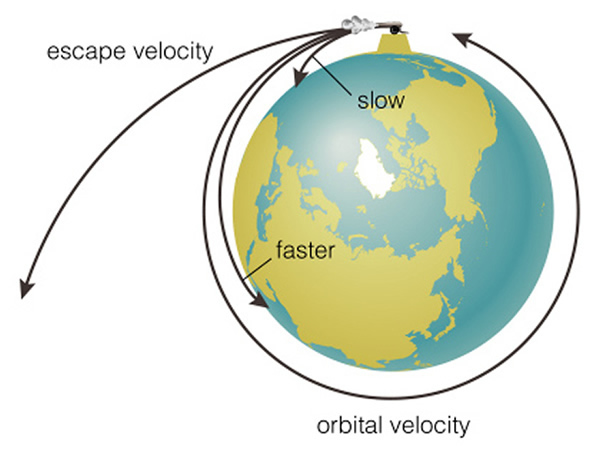If you want some help making sure you understand all the concepts in your study notes, why not check out our free online tutoring service?
You’ve smashed through two terms of Year 12, which means that you’ve probably covered a lot of the content you need to know by the time the HSC exams come around. Whilst that might seem like a scary thought, knowing that there is still so much more to learn, it’s actually a massive bonus for you. Whilst you may forget little details that you’ll need to revise for exam time, the massive concepts that you’ve learnt thus far will slowly sink into your long-term memory, so that what seemed insanely difficult just a few months ago will be child’s play in no time at all.
That being said, moving forward you really want a solid set of study notes that you’ve created yourself. Because you’re not going to stop learning new content for a while, you’re not really going to have time to go back and re-teach various concepts and details to yourself. Having a document summarising necessary information, ways to remember details, tips given to you by your teacher, and answers to common exam questions, is an incredibly important way to hit the ground running as you enter the second half of your year.
You’ve probably got a mess of random study notes already; some stuff scrawled into a book, a messy word document with a bunch of bolded REMEMBER THIS, and a whole bunch of thoughts and tips still fresh in your mind. With the amount that you’ll be learning come term 3 and 4 of year 12, you really can’t afford to assume that you’ll just ‘remember’ all of the stuff without having a document to refer to. Here are my recommendations for how to get that done efficiently and successfully.
The (modern) age old question- to type or not to type?
You will hear again and again that writing down information is a much more effective way of remembering content and preparing for the HSC. I totally agree with this; by taking those extra few minutes writing things out, it’ll be more likely to stick in your brain, and since the HSC isn’t a computer test (unfortunately) learning to improve your handwriting is important. I started my HSC by writing all of my notes by hand, for Chemistry, Modern History, Maths, Physics, everything.
Halfway through the year (so about now for you all), I realised one thing about my study notes. I just didn’t have time to maintain them. I didn’t have time to find the right coloured pens for Chemical equations, I didn’t have time to go and rip out pages that had incorrect data on them and redo them, and I certainly didn’t have time every morning to figure out which of my various coloured study notes books I needed to take to school.

So, I made the executive decision to type up my notes, and it made my year so much easier. Whilst handwriting definitely has its benefits, typing has way, way more (in my opinion). You can easily go back and edit things, add information, add past questions, highlight important things, delete unimportant things, restructure your notes, add images from google, colour code, send to friends, add notes from elsewhere etc. etc. etc.
I used one massive word document for each topic (ie. 4 documents for each subject that I did). I know a lot of more tech-savvy people used OneNote, which is a great program for compiling study notes, and I would definitely recommend using it if you aren’t stuck in your Word 2013 ways like I am.
To summarise, I would highly recommend typing up your study notes for the reasons listed above. It really will save you so much time during the year. Make sure to hand write answers to questions from past papers etc. to ensure that you’re still developing your handwriting and applying your learning to the page, but honestly when you’re word documents are a totally of like 100,000 words, you’ll thank me.
Structure
Write your study notes out by dot-point of the curriculum
Use colours to denote more important information, and make sure the colour scheme is consistent
Bullet-point/number as much as possible
Try not to write more than is absolutely necessary. There’s no point making the HSC harder than it is
Include common past-paper questions, with worked answers
Include images that help to explain/remind you of how concepts work
The above is a pretty clear example of how short, sharp dot-pointed sentences convey an idea much, much better than long explanatory paragraphs.
Compare the following two potential inclusions in your study notes;
Option 1
Escape velocity is the velocity required for an object (like a space-craft, tennis ball, satellite etc.) to escape from Earth’s gravitational pull and continue to travel through space. Below the escape velocity, an object will be pulled back towards earth due to its gravitational pull, forcing it to crash into the planet or to go into orbit. Escape velocity must be utilised in order to work out how to get space-craft into space, for instance to travel to Mars. The idea of escape velocity was originally discussed by Newton, and is important for many modern scientific endeavors.
Option 2
9.2.2 Outline Newton’s concept of escape velocity
– Postulated by Newton
– Utilised to allow space-craft to travel beyond Earth

It’s pretty obvious that the second option, which contains the same (and even more) information than the first, is way easier to remember and will jog your memory far more quickly.
By writing your notes out by dot point of the curriculum, you’ll also be able to tell where you need to do a bit more work. If you feel like you’ve never even seen a certain dot-point before, do some research and take some notes for future reference. Compare your study notes with some of your friends, to make sure you’ve covered all the information you need or to help you to understand certain sections!
Those are my main tips for bringing your study notes up to date! It’s really, really important that you do this now, as you really won’t have time to get them up to scratch later in the year. Doing past papers, with your notes in hand, is the best way to study. It helps you learn what you don’t already know, and consolidate what you do. Eventually, you’ll be able to destroy papers without using your notes, but for now having a comprehensive, typed, dot-point oriented set of notes is a super, super helpful resource.
If you want heaps of other helpful resources, like tips to learning content, help answering specific questions, free essay marking and much more, why not take a look at our free online tutoring service?






